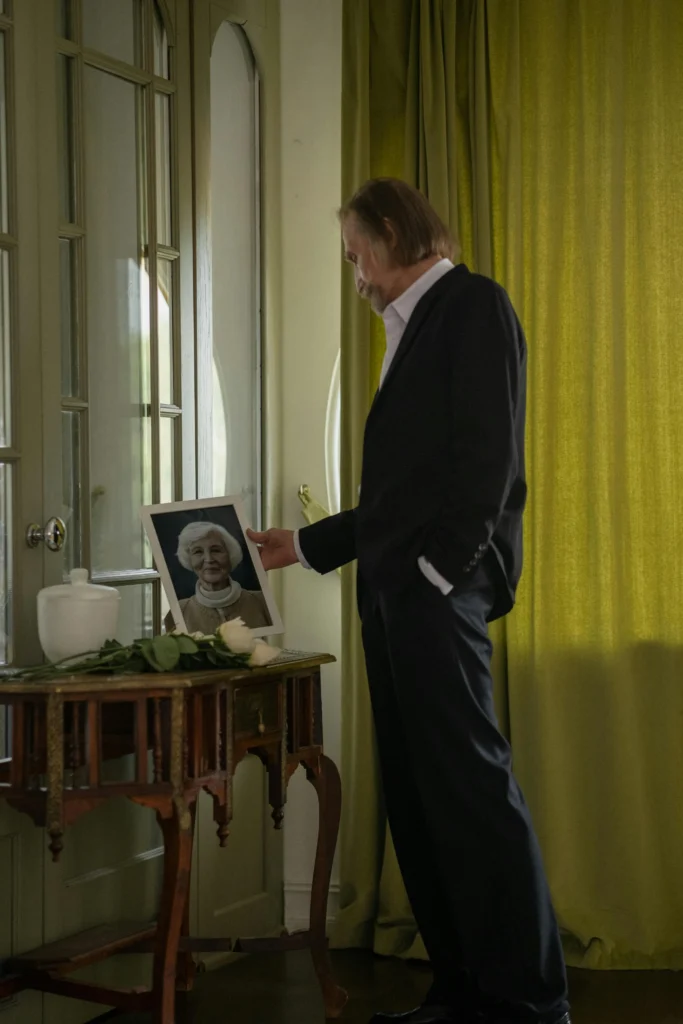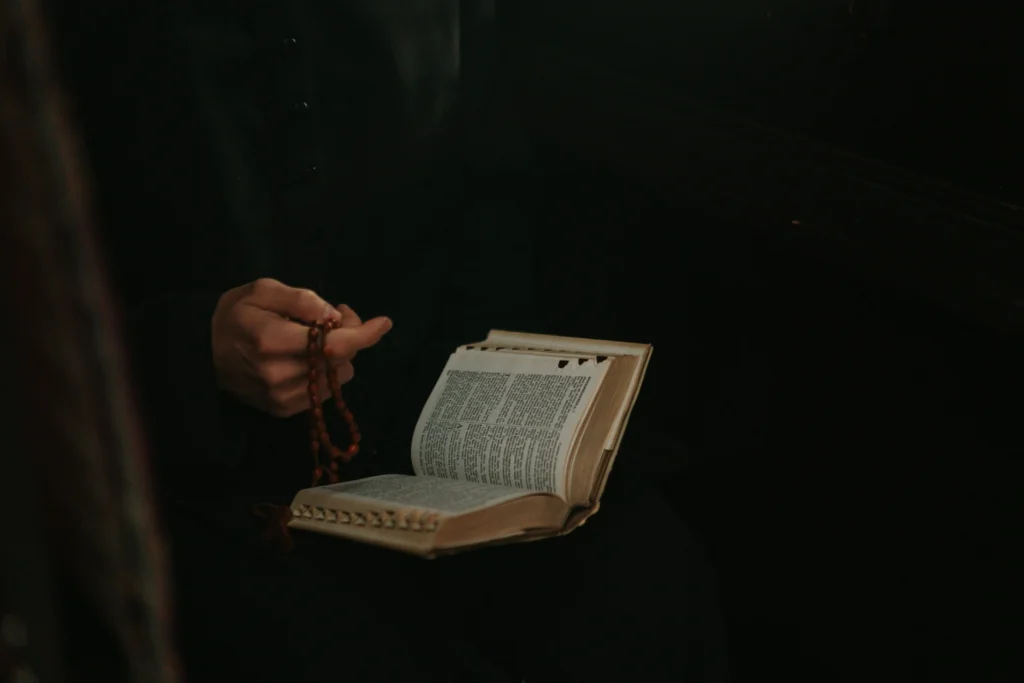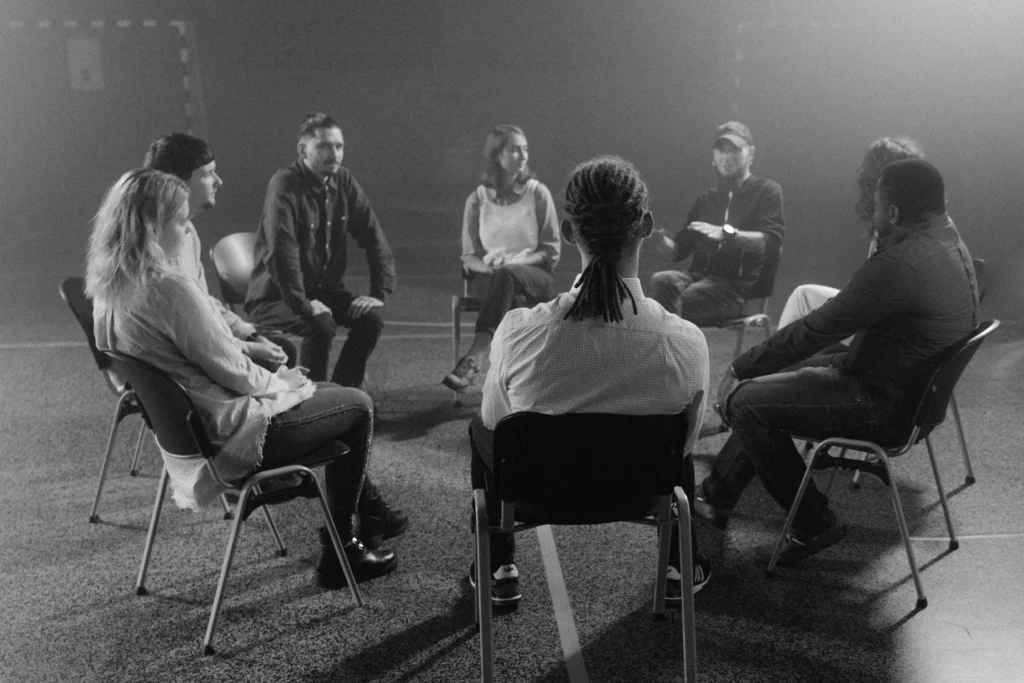The 8 Types of Loss That Trigger Grief (and How to Recognize Them)
Grief encompasses us when a loved one dies, but it also threads through so many corners of life. If you’ve ever felt lost after a health scare, the end of a relationship, or as dreams quietly fade, you’re not alone. This is all grief. The bible teaches that Jesus was “a man of sorrows, and acquainted with grief” (Isaiah 53:3 KJV). Knowing that Jesus knew grief well teaches us that getting to know our grief can also help us get to know Jesus.
It can be hard to name the ache or even recognize why certain losses cut so deep. This post shines a light on eight forms of loss. You’ll find practical tips for identifying and honoring each type of loss—because identifying your grief is often the first step to finding peace, faith, and hope again.
Loss Through Death
When someone you love dies, it feels like the world suddenly stops turning. This most recognized form of grief carries unique challenges for Christians who hold both the pain of earthly separation and the promise of heavenly reunion. While your faith offers comfort through beliefs in eternal families and God’s plan, the daily reality of absence creates a profound emptiness that deserves acknowledgment.

The Shock of Sudden Loss
When death arrives without warning, it shatters your sense of security in an instant. The mind struggles to process such abrupt change. This sudden fracturing of your world often brings:
- A sense of unreality, as if you’re living someone else’s nightmare
- Physical symptoms including sleep disturbances and chest tightness
- Deep questions about God’s timing and purpose
Even with strong faith, these reactions aren’t signs of spiritual weakness but natural responses to profound loss.
The Pain of Anticipated Loss
When death follows a long illness, grief often begins long before the final goodbye. This extended journey brings its own challenges:
- Anticipatory grief as you witness decline and prepare for inevitable loss
- Complex feelings when death brings both sorrow and relief from suffering
- Emotional and spiritual exhaustion from prolonged caregiving
Your faith doesn’t eliminate this weariness, but provides a foundation of hope beneath it.
Walking Forward with Faith
Death-related grief transforms every aspect of daily life—from holiday traditions to empty chairs at the dinner table. Navigating this might look like:
- Your questions and even anger toward God can become pathways to deeper faith
- Church community offers both practical support and spiritual companionship
- Scripture provides language for your pain while pointing toward future hope
Grief is not contrary to faith— it often enhances it. Jesus said, “Blessed are they that mourn, for they shall be comforted” (Matthew 5:4 KJV).
Health Related Loss
The grief of health-related losses often arrives quietly—through doctor visits, new medications, or the gradual realization that your body has fundamentally changed. Unlike the clear boundary of death, this journey blurs the lines between what was and what is. This path can challenge physical strength, but also spiritual understanding as you reconcile faith with physical changes and limitation.

The Diagnosis Dividing Line
When health crises arrive, life feels split into “before” and “after.” This division creates its own form of grief:
- Your sense of identity shifts as independence gives way to new limitations
- Future plans require painful adjustment or complete reimagining
- Invisible symptoms create a lonely gap between your experience and others’ understanding
Like Paul in the New Testament, you may also discover that your “thorn in the flesh” becomes the very place where God’s strength manifests (2 Corinthians 12:7-9 KJV).
The Quiet Persistence of Chronic Illness
Unlike acute conditions, chronic illness brings a different grief—one that ebbs and flows without clear resolution. This “drizzly day that lingers” creates:
- Recurring waves of loss with each new symptom or limitation
- Emotional complexity as you navigate both grief and gratitude
- Spiritual questions that deepen as the journey continues
Jesus promised Paul that “my grace is sufficient for thee” (2 Corinthians 12:9 KJV)– a reminder that healing may not be instant, but His grace will be sustaining.
Finding Faith in the New Normal
Health-related losses can profoundly impact your relationship with God. The questions are natural: Why this? Why now? Why me? Your doubts don’t diminish your faith—they’re often the pathway to deeper understanding. As you adjust to new realities, small spiritual practices become anchors:
- Receiving help from your church community
- Finding moments of prayer even in pain
- Discovering new ways to serve others, despite limitations
Through these practices, hope doesn’t replace grief but grows alongside it, creating a testimony more powerful than perfect health could ever provide.
Living With “New Normals”
Life after health-related loss can feel like learning a new language. It’s normal to miss the old you, and equally normal to celebrate small wins in your new life. Take time to grieve your losses—both big and small—without guilt. You might find hope grows quietly, right alongside your grief. Acts of service, moments in prayer, or gentle reminders from scripture can help tiny seeds of faith flourish, even in rocky ground.
Relationship Loss
The grief of lost relationships carries a unique sting—the person you’re mourning still exists, but the connection you treasured is gone. Whether through divorce, estrangement, or the quiet erosion of once-close friendships, these losses leave a void shaped like shared dreams and inside jokes. Relationship loss can challenge beliefs about forgiveness, identity, and God’s plan for our connections with others.

The Shock of Sudden Endings
When a relationship ends out of the blue, it often feels like you’ve been hit by a tidal wave. You replay the last argument or text. You question everything you did or didn’t do. Some people find themselves physically sick from the shock—headaches, stomach aches, or exhaustion can all show up unexpectedly.
- You might struggle to focus at work or church.
- Sleep becomes hard, or sometimes, you can’t stop sleeping.
- Small reminders—a song, a favorite place, the smell of their cologne or perfume—can feel like sharp jabs to your heart.
Your faith might feel shaky here. You wonder if God sees your pain, or if anyone else could ever understand the loss of something so central. Holding on to simple prayers or scriptures about love and healing can help you breathe through the hardest moments.
The Pain of Slow Goodbyes
Not all relationships end cleanly. Sometimes, you watch the closeness fade over months or years, like the slow burning out of a candle. Small misunderstandings stack up, communication slips, and before you know it, there’s a gap where connection used to be.
- You might feel invisible, unloved, or unworthy.
- The loss can be harder to name because it happens so gradually.
- It’s common to feel guilty, blaming yourself for not being able to fix things.
Lingering grief from slow loss can catch you off guard. A holiday rolls around, and you realize you haven’t heard from that friend in months. You find yourself making excuses for others or yourself. This kind of loss can feel lonely, especially if it seems like nobody else notices what you’re missing.
Faith, Forgiveness, and Letting Go
Relationship loss brings up tough questions for many Believers. You might wrestle with forgiveness, letting go of anger, or the challenge of praying for someone who hurt you. We’re taught that everyone gets a chance for a new beginning, but that doesn’t always erase the sting of old wounds.
- Real forgiveness might be a process, not a single choice.
- Letting go doesn’t always mean instant peace—it may take weeks, months, or even years.
- You don’t have to walk this road alone. Support from church leaders, therapists, or friends can make all the difference.
True healing may mean creating appropriate boundaries while maintaining an open heart—a delicate balance that honors both your pain and your faith. In this space, grief transforms into wisdom, and lost relationships become teachers about God’s enduring love.
How to Care for Yourself
After relationship loss, self-care becomes both essential and challenging. Begin with small, sacred acts: morning walks, conversations with trusted friends, or journaling prayers and thoughts. Recognize that you’re grieving not just the person but the future you envisioned together.
Essential steps for healing:
- Honor all your emotions—sorrow, anger, confusion, and even relief have their place
- Create boundaries with those who diminish your grief or push for premature healing
- Trust that grace fills the spaces left empty by loss
Remember, relationship grief often feels isolating, but you’re not alone in this journey. Whether through church community, Scripture, or shared stories from others who’ve walked similar paths, connection and understanding await. Loss transforms us, but transformation doesn’t eliminate hope—sometimes it reveals hope wearing a different face than we expected.
Career and Financial Loss
Job loss and financial hardship create a distinct form of grief—one that society often minimizes but cuts deeply into our sense of self. When your income disappears, you lose more than financial stability; you lose daily purpose, professional identity, and sometimes the respect you felt from others. Sometimes, the world’s advice on “bouncing back” feels hollow, especially when faith is at the core of your life. How do you trust God when you’re not sure how you’ll pay rent, feed your family, or hold together your sense of worth?Sometimes, the world’s advice on “bouncing back” feels hollow, especially when faith is at the core of your life. How do you trust God when you’re not sure how you’ll pay rent, feed your family, or hold together your sense of worth?

The Grief Behind Lost Work and Income
Job loss strikes at more than your bank account—it attacks your sense of worth. When steady paychecks disappear, so does the confidence that comes from providing for yourself and others. This unique grief blends future anxiety with present shame, creating a burden many carry silently.
- You might feel embarrassed, even if the loss wasn’t your fault.
- Shame and guilt sneak in, making it hard to talk to friends or family.
- It’s common to worry about being a burden, especially if others depend on you.
Physical symptoms often accompany financial grief: sleepless nights, tension headaches, and exhaustion that makes simple tasks feel monumental. Your body carries the weight of uncertainty, turning stress into tangible pain.
You might wrestle with spiritual questions during financial crisis: “Is this punishment?” “Should I be grateful despite my loss?” Scripture reminds us that even the faithful face hardship—Job lost everything yet remained beloved by God, while Joseph’s career setbacks preceded divine purpose. Your financial struggles don’t reflect your spiritual worth, as even the most devoted believers experience material challenges.
Faith Struggles in Times of Financial Hardship
Financial loss tests faith in profound ways—transforming simple acts like tithing, church attendance, and even prayer into complex spiritual challenges. For many, you may feel the tension between valuing honest work and remembering that worth transcends worldly success creates particular struggles.
- It’s normal to wrestle with anger at God—or just deep confusion—over what comes next.
- You may revisit old stories in scripture, searching for examples of God’s care in times of famine or want.
- Sometimes, just reading a line or two of Scripture gives you enough hope to face the day.
Remember that financial trials don’t diminish your divine worth or standing before God. Like manna in the wilderness, His provision often comes daily rather than all at once, teaching us to trust Him step by step through uncertainty.
How to Find Hope After Financial and Career Loss
Hope often arrives in fragments during financial crisis—through a neighbor’s unexpected meal, a job interview opportunity, or scripture that suddenly speaks to your exact situation. Recovery doesn’t require solving everything immediately or weathering the storm alone.
Practical steps to help:
- Create a basic budget, even with limited resources—clarity reduces anxiety
- Accept church and community assistance gracefully, remembering you’d do the same
- Pursue small jobs or volunteer work to maintain momentum and purpose
- Seek divine guidance through prayer, recognizing answers in quiet promptings
- Draw strength from biblical accounts and personal history of God’s faithfulness
Career and financial loss rewrites your expected narrative, but not your ending. These valleys often become turning points toward unexpected callings—developing new talents, deepening empathy, or strengthening testimony. The refinement process feels painful but frequently produces profound growth.
Identity Loss and Role Changes
Identity loss strikes at the core of who you believe yourself to be. When children leave home, careers end, or physical abilities change, the person in the mirror becomes a stranger. These invisible losses—the quiet shifting of roles that once defined you—can devastate as deeply as any death, yet often go unacknowledged by others.
While Scripture assures us our worth lies in Christ, the sudden absence of familiar roles—parent, professional, provider—challenges not just daily routines but fundamental understandings of purpose. This grief demands a particular courage: facing not just what you’ve lost, but reimagining who you’ll become.

When You Lose Who You Used to Be
Some losses never receive flowers or sympathy cards. You might grieve the loss of who you were. When life changes in fundamental ways, there’s grief for what once was and the future you imagined. I know the feeling of looking in the mirror and seeing someone seemingly new.
Common examples of identity loss include:
- Retiring or losing a job that defined you
- Kids leaving home
- A marriage ending
- Becoming a caretaker—or losing that role
- Chronic illness changing what you can do
- Loss of community position or calling
This grief carries unique burdens: guilt for not “adjusting” quickly enough to your circumstances and pressure to “stay positive”. Many won’t understand that identity loss requires the same respect as any profound grief. You’re mourning not just routines or roles, but the person you knew yourself to be.
The Grief of Changing Roles
Life often rewrites your role without warning—through illness, retirement, or even positive transitions like children growing up. These shifts force you to surrender familiar identities and adopt new ones, often with little preparation or choice in the matter.
The experience brings distinct losses:
- Finding yourself the “former” version of roles that once defined you
- Watching social connections fade as your place in community shifts
- Confronting a reflection that no longer matches your internal sense of self.
This disorientation triggers waves of emotion that society often trivializes as “adjustment periods” or “phases.” Yet these feelings deserve acknowledgment. When comparing yourself to who you once were, remember that your core value remains constant despite shifting roles. While earthly identities change, your worth as a child of God remains unshaken.
Identity Loss and Your Faith
When meaningful roles dissolve—parent of young children, career professional, church leader, or caregiver—questions about purpose and value often follow. The shifting landscape of daily life challenges your understanding of who you are and why you matter.
In this transition, faith becomes an anchor rather than an activity. Prayer shifts from requests for strength in service to communion that affirms your value beyond what you accomplish. Church attendance becomes less about fulfilling callings and more about belonging to a community that sees beyond temporary roles to eternal identity.
Owning Your Story Amid Role Changes
When your role—or your whole identity—shifts, it might seem like life pressed pause. But this can be the moment you begin to own your story in new ways. Let yourself feel the loss. It’s hard work to grieve for the person you thought you’d always be. You aren’t “starting from scratch”—you’re gathering new strength.
Try these gentle approaches as you settle into new roles:
- Name what you miss, even if it feels small.
- Make space for sadness and hope to sit together.
- Reach out—to friends, mentors, support groups, or church leaders.
Remember that seasons of confusion don’t reflect abandonment by God or permanent loss of purpose. Your divine worth remains unchanged even as your earthly roles evolve. With time and patience, your reflection will become familiar again—not because you’ve returned to who you were, but because you’ve grown to recognize who you’re becoming.
Pregnancy Loss and Infertility
The grief of pregnancy loss and infertility touches the deepest parts of the human heart—often in ways others cannot see or fully understand. Whether experiencing early miscarriage, stillbirth, failed fertility treatments, or years of unexplained inability to conceive– or anywhere in between– this journey creates a profound sense of emptiness and longing that deserves recognition and compassion.

The Pain of Empty Arms
Pregnancy loss brings a painful grief—mourning both a present reality and future possibilities. This experience is often compounded by well-meaning but hurtful responses: silence from those afraid to mention your loss, or platitudes that dismiss your pain with comments like “You can try again” or “It wasn’t meant to be.”
For those facing infertility, grief arrives in cycles—hope rising with each potential opportunity, followed by crushing disappointment as tests return negative month after month. This journey transforms ordinary experiences:
- Medical appointments shift from exciting possibilities to dreaded reminders
- Family gatherings become emotional minefields of pregnancy announcements
- Prayer itself can become a battlefield of faith and doubt
Both experiences challenge not just dreams of parenthood but core beliefs about your body, purpose, and future. The pain frequently intensifies within faith communities where family milestones are celebrated and parenthood is emphasized.
When Faith Meets Reproductive Loss
Church settings can become particularly challenging places when grieving pregnancy loss or infertility. Baby blessings, children’s programs, and Mother’s Day services—designed to bring joy—can become painful reminders of what’s missing from your life.
Scripture, however, offers profound solidarity. The Bible contains numerous accounts of women and men who walked this exact path: Sarah waited decades for Isaac, Hannah wept bitterly before God for Samuel, Rachel cried “Give me children, or else I die,” (Genesis 30:1 KJV) and Elizabeth was called “barren” until her miraculous pregnancy with John. These stories remind us that waiting, longing, and even questioning God are not signs of weak faith but honest expressions of deeply human experiences.
These biblical figures demonstrate that God doesn’t turn away from reproductive grief—even when answers or miracles take years to arrive. Their stories testify that your tears are counted and your prayers heard, even when Heaven seems silent.
Honoring Invisible Losses
The isolation of reproductive grief stems from its often invisible nature—you’re mourning someone few or none may have met, or the potential of someone who never came to be. Important dates—due dates, potential conception windows, anniversaries of loss—pass unnoticed by others while weighing heavily on your heart.
In navigating grief and faith simultaneously, you might wonder how you can allow yourself to feel both comfort and sorrow. Some find healing through:
- Creating meaningful remembrance rituals, such as lighting candles or journaling
- Sharing their story in supportive communities where others understand
- Finding moments of peace through prayer, scripture, or quiet contemplation
Grieving pregnancy loss or infertility isn’t about abandoning hope. It’s about learning to hold both joy and sorrow together—acknowledging the pain while remaining open to healing. This journey transforms not just how you view parenthood, but how you understand God’s presence in suffering and the profound community that can form among those who share this sacred sorrow.
Loss of Dreams and Aspirations
We all carry dreams that shape our lives—the career we imagine, the family we hope for, the achievements we pursue. When these dreams dissolve, whether suddenly or gradually, they leave behind a grief that often goes unrecognized. These losses challenge not just personal hopes, but also understanding of God’s guidance and promises for your life.

The Quiet Loss of “What Could Have Been”
Grieving dreams is different from grieving people. No meal trains arrive when you lose the chance to earn a degree, never marry, or watch a career goal slip away. The world might not even see your loss, but you do. You find yourself counting milestones that never happened and birthdays that don’t belong to anyone but you. Maybe you look at the lives of others and wonder why your story turned out so differently.
- You might grieve missed opportunities or the loss of a future you spent years building toward.
- Regrets can pile up over choices you did—or didn’t—make along the way.
- It’s common to feel embarrassed or even ashamed that these losses hurt as much as they do.
This invisible loss can hurt because it’s often unnamed. When hopes fade—whether it’s a dream of having children, starting a business, returning to school, or finding a spouse—the grief can linger for years.
Where Faith Meets Disappointment
You might ask, “Wasn’t I praying enough? Did I make the wrong turns?” Those are tough questions. Sometimes, dreams fall apart for reasons we’ll never fully understand. It’s easy to feel as if God has closed a door and left you wandering down a hallway with no map.
It helps to remember that even people in scripture faced dreams that died on the vine. Moses never entered the promised land, even after all his faith and work. Paul longed to visit places he’d never see. These stories show us that loss and disappointment are not a sign of weak faith. Rather, they are chances to look again for God’s hand in new places.
Latter-day Saint teachings emphasize the idea that God’s timing is different from our own. There might be parts of your story that don’t make sense here, but will someday. Until then, it’s okay to bring your pain to Him—again and again.
If you’re struggling with the letdown of a hope that never came to pass, you might find comfort in reading about common grief reactions nobody talks about, including the unique grief of dreams deferred.
How to Honor Grief for Lost Aspirations
While there’s no roadmap for grieving lost dreams, you can create your own ways to honor these invisible wounds. Let yourself acknowledge what you hoped for—and what you didn’t get. That simple act can bring a measure of peace.
Some gentle steps to consider:
- Write a letter to your “future self” naming the dream and how it shaped you.
- Mark special dates or anniversaries tied to that hope, even quietly.
- Share your feelings with trusted friends, a pastor, or a support group.
- Let yourself feel anger, sadness, or relief without judgment.
Grieving lost aspirations means letting God see the deepest corners of your heart, including the dreams that didn’t work out. He holds space for all of it. And while the world often says “move on,” faith reminds us there is meaning even when the story doesn’t go the way we planned.
If you’re seeking more understanding about how hope and disappointment can live side by side, explore resources on healing in grief, where you’ll find stories and reflections from others learning to trust God with both their joys and their sorrows.
No dream is too small to grieve, and no loss is too quiet for God to notice. Whether your aspirations faded slowly or disappeared in a moment, there is still space for hope on the other side of disappointment.
Faith Related Loss: Spiritual Disappointment or Crisis
Sometimes faith itself becomes the source of grief—like a foundation you trusted suddenly developing cracks. This spiritual loss often arrives unexpectedly, sending ripples through your identity, relationships, and sense of meaning. Unlike theological questions or doctrinal debates, faith-related grief strikes at your deepest connection with God and your understanding of how the world works.

When Faith Feels Out of Reach
Spiritual crisis often emerges when deeply held expectations about faith collide with painful realities. You may have prayed for healing, clarity, or protection, only to encounter silence or outcomes that seem to contradict God’s promises. This disconnection can feel like a profound betrayal.
This spiritual grief typically arises from:
- Prayers that seem to go unanswered during critical moments
- Feeling abandoned by God despite faithful obedience
- Disillusionment with religious leaders or community
- Discovering gaps between promised blessings and lived experience
The isolation deepens when others appear unshaken in their faith, making you question whether your doubts reveal spiritual weakness rather than authentic wrestling.
Wrestling with Once-Cherished Beliefs
Acknowledging spiritual disappointment isn’t abandoning faith—it’s honoring your honest experience. Scripture itself models this authenticity through figures like Job questioning God’s justice, David lamenting divine absence, and even Christ crying out, “Why have you forsaken me?” These sacred examples demonstrate that doubt has always belonged within faith.
This grief manifests in unique ways:
- Avoiding once-meaningful spiritual practices that now trigger pain
- Feeling disconnected during worship or uncomfortable with testimonies
- Experiencing profound sadness when confronted with religious language
- Carrying the weight of silence about your struggles
You stand in a long tradition of believers who have experienced spiritual desert seasons. The dark night of the soul—recognized across Christian traditions—acknowledges that periods of spiritual desolation are normal parts of faith development, not evidence of failure.
Finding your way through Spiritual Wilderness
When faith wavers, everyday challenges become heavier without the comfort religious practices once provided. You may grieve not just your connection with God but also the security, identity, and community that accompanied your more certain faith.
Small steps forward might include:
- Bringing your authentic feelings, including anger and confusion, into prayer
- Finding one trusted person who can witness your questions without rushing to answers
- Embracing silence and listening differently for divine presence
Healing from faith-related loss follows no predictable timeline. The journey often involves learning to hold uncertainty alongside trust—discovering that faith grows not through absence of doubt but through honest engagement with it.
Remember that even a mustard seed of hope is enough. The path forward may not restore your former certainty, but it can lead to a deeper, more resilient faith forged through the very questions that once threatened to undo you.
Caring for Yourself Through Any Loss
Grief has no timeline or uniform pattern—it’s as unique as you are. Recognizing and honoring your grief isn’t about “getting over it” but about creating space to experience your pain honestly while holding onto faith. This balance allows both your heart’s genuine sorrow and your spiritual hope to coexist without either diminishing the other.
When to Seek Additional Help
Sometimes, personal prayer, scripture, and support from family or friends don’t seem to be enough. You might notice that the heaviness won’t lift, no matter how hard you try. Seeking professional help isn’t a sign of spiritual failure but an act of wisdom and self-care. Counseling does not reflect weak faith, but in truth, reaching out demonstrates both courage and stewardship of your emotional well-being.
Consider additional support if you experience:
- Persistent sadness that interferes with daily functioning for extended periods
- Emotional numbness or disconnection from loved ones and previously meaningful activities
- Significant changes in eating, sleeping, or self-care patterns
- Uncharacteristic anger, irritability, or anxiety
- Thoughts that life lacks meaning or purpose, or impulses to withdraw from relationships

Sometimes, reaching out is the greatest act of faith you can make. Many pastoral counselors, therapists, and church leaders are equipped to walk with you through deep grief. Support groups—both at church and in your local community—are also safe places to share and heal.
Finding Hope in Every Loss
Grief changes you, but it never means your story is over. Each type of loss—whether through death, health, relationships, career, identity, pregnancy, dreams, or faith—leaves real marks, and honoring them is an act of courage. Christ understands every ache you carry; He felt it all and promises not to leave you alone in it. When you name your grief and let yourself sit with it, you open the door for comfort, clarity, and new hope.
Remember that healing doesn’t mean forgetting or “moving on” from your loss, but rather allowing it to become part of your story without defining your future. The community of faith offers companionship on this journey, reminding us that authentic healing happens not in isolation but through honest connection, shared prayer, and the enduring promise that even in your darkest valleys, hope remains alive.
This journey through grief will unfold differently for each person, but you never need to walk alone. As you navigate your unique path, may you discover unexpected grace in unlikely places and the quiet strength that comes from allowing both sorrow and hope to coexist—just as they do in the very heart of God. spending your time here. Share your journey, ask your questions, and know you are always welcome back.
